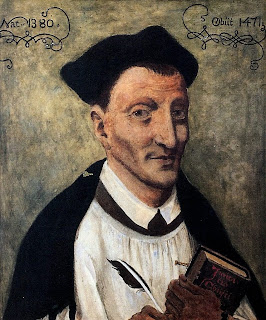This is a very challenging Article, but it makes some very good points.
Stop Waiting for Your Calling
There seems to be an unsettling trend amongst many able-bodied young Catholics to spend a near minimum of five years – if not longer – “discerning” their vocations. Yes, there are exceptions for those who have been through traumatic events in their life, who have suffered abuse, who still need to mature, and so forth. But generally few have any reason to take so much time in order to make a decision.
To take one example, there are many Catholic couples who have been in exclusive relationships for 3, 4, or even 5 or more years without ever becoming engaged (Crazy!). If one still has doubts after dating someone for up to a year (concupiscence doesn’t help in extending a relationship much longer than unless there is a commitment to marriage), break it off! The heart needs to be protected from growing too attached to someone who does not intend to commit. It’s one thing to be engaged for some time (if the man is deployed, etc.), but as a matter of general practice, the Church recommends engagements no longer than a year to 2 at most in order to be a safeguard for one’s virtue.
It is a similar situation for those in religious life or the priesthood. God isn’t going to finally let someone know after 10, 15, or even 20 years that that isn’t their vocation; one will know the answer to that question long before. It seems that those who leave after a substantial time usually come to realize that they should have left long ago.
What is this crisis? While there is by no means an exhaustive list of reasons as to why this “perpetual discernment” is so commonplace, it seems that a great part of this problem bay be tied to many discerners’ desire to “look for signs” and other mystical confirmations. This phenomenon is characterized by long periods of waiting, “just to know for sure.’ Speaking from personal experience – both my own and from being intimately involved in helping and guiding others in their vocation process over the years – I can tell you that God speaks to us not in extraordinary capacities, but through the means of our everyday existence. He will not knock you off your seat and tell you what he wants; those sort of revelations are rare circumstances. He also doesn’t promise absolute clarity about everything – faith is “faith” for a reason. However, God does promise to be with us “until the end of time,” and therein is our consolation. He gives us his alter Christus – the priest – as a director and confessor in order to guide our reasoning and our decisions. If there is difficulty discerning, why not follow the advice of one’s spiritual director?
God isn’t going to make someone spend the greater part of his youth trying to just “figure things out,” or penalize someone for “accidentally” choosing the wrong path. God has given each of us particular talents, abilities, desires, and inclinations. If we really listen – if we pray – he will speak to our hearts and draw us towards his divine will. But he does so quietly, softly, like the “still small voice” (1 Kings 9:11). You will not find him in the wind, the earthquake, or the fire, so stop looking there. Instead, make a decision and go forward in confidence and peace. If you are truly seeking God’s will and are doing what you’ve decided is best, God will bring it to fruition; if it is not his will, he will quickly alter your course. And he won’t take a decade or longer to do it, causing you to live in the dark for so long a time. In fact, the moment you make a resolution and act upon it, wonderful things happen. And this affirmation is enough to give us the peace and strength to keep pushing onward and upward.
For more on this article: http://webcache.googleusercontent.com/search?q=cache:http://www.aleteia.org/en/lifestyle/article/stop-waiting-for-your-calling-5224640381190144





